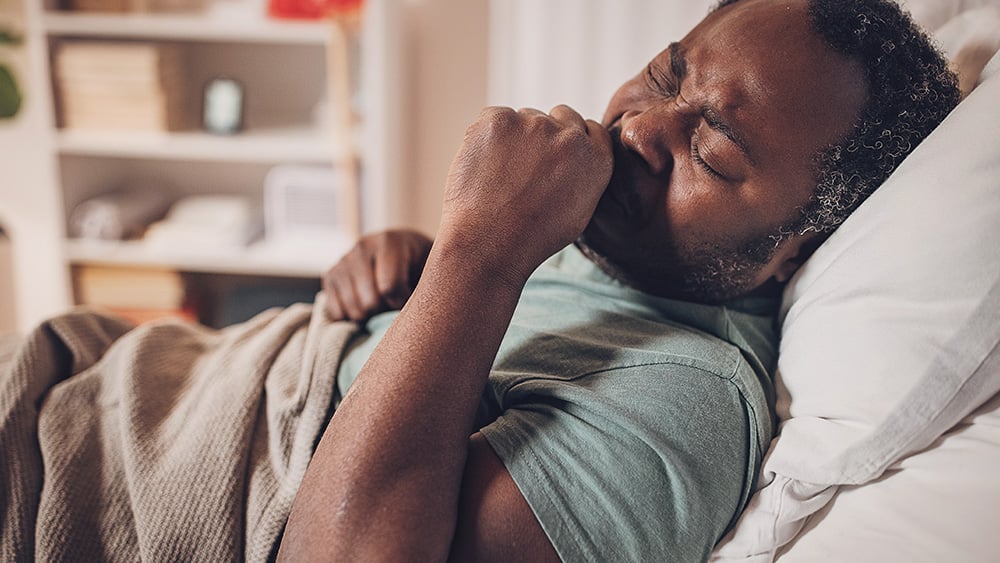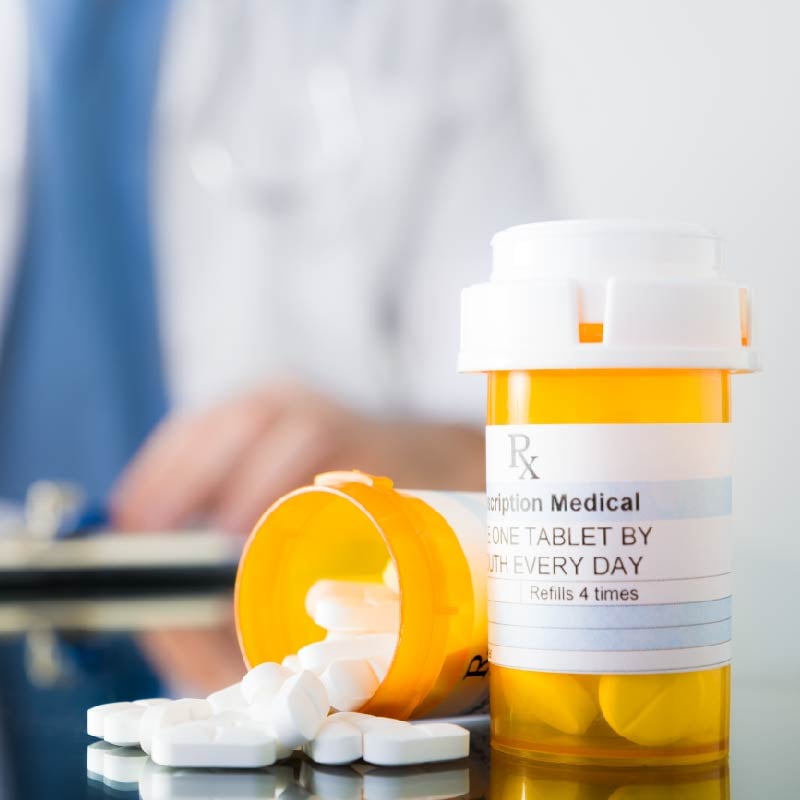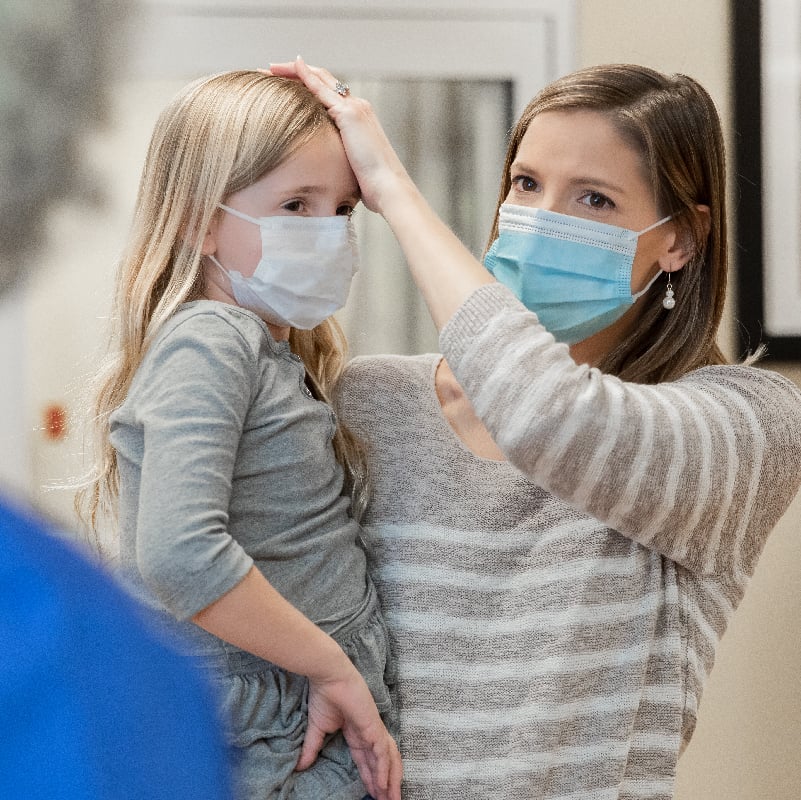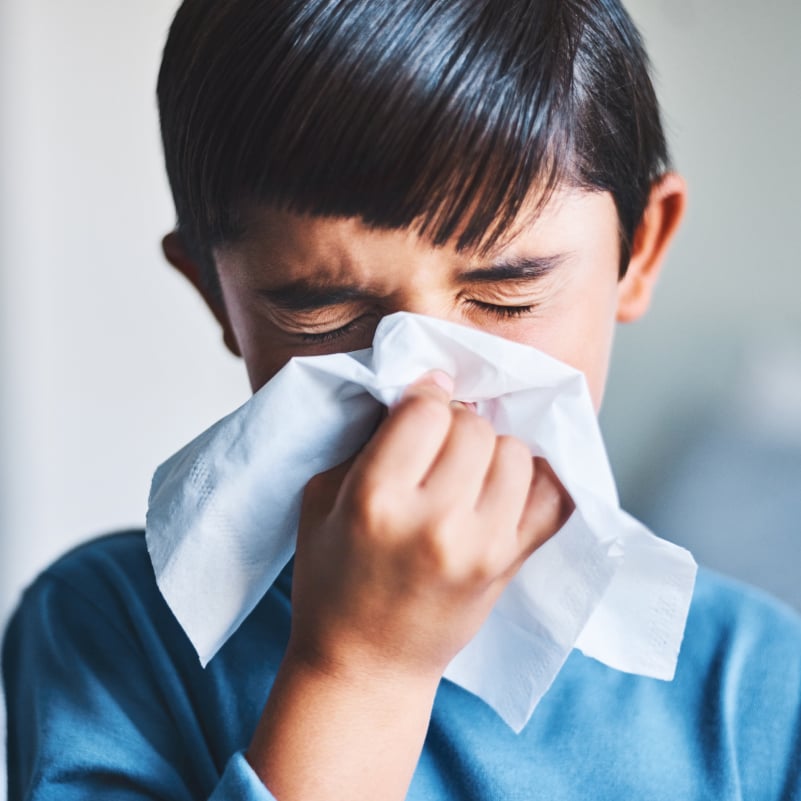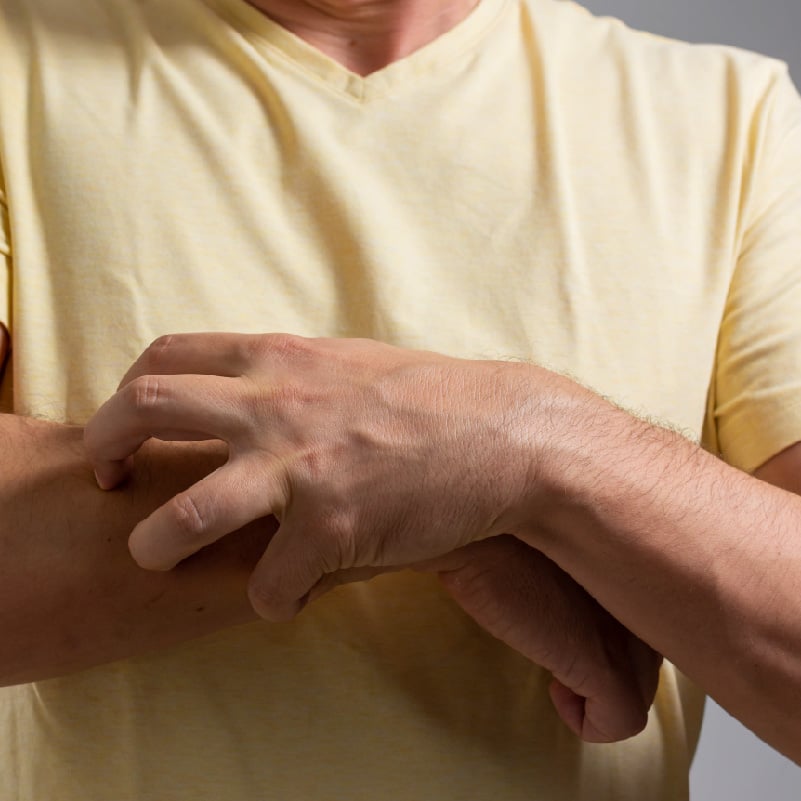Key Takeaways
- Human metapneumovirus (HMPV) is similar to RSV and flu with its symptoms.
- HMPV spreads often in the colder months from person to person through close contact.
- The best way to prevent HMPV from spreading is to wash your hands, avoid touching your face with unwashed hands, and stay home if sick.
Easily schedule appointments or find walk-in care when and where needed. No matter what situation you are experiencing, we have you covered.
There are many respiratory viruses that tend to circulate around schools, workplaces, and other public places, especially during the colder months of the year.
Human metapneumovirus (HMPV) is not as familiar as RSV or influenza, but its symptoms can still keep people down for several days. With recent news coverage bringing more attention to the virus, Emil Lesho, DO, is the Program Director of Healthcare Epidemiology at Rochester Regional Health and explains how to recognize the symptoms of HMPV, different ways to treat the virus, and how to avoid getting sick.
Symptoms of HMPV
Human metapneumovirus is in the same family of viruses as RSV, which helps to explain why most of the symptoms caused by the virus are similar. While HMPV can affect anyone, young children, older adults, and people with weakened immune systems are more likely to contract the virus.
Some of the symptoms of HMPV include:
- cough
- fever
- nasal congestion
- shortness of breath
These symptoms are spread from person to person through coughing or sneezing, touching or shaking hands, or coming into contact with contaminated items or surfaces and then touching your nose, mouth, or eyes. As symptoms worsen for some patients, the virus might progress to becoming bronchitis or pneumonia.
“If serious coughing or congestion lasts longer than 7-10 days, get in touch with your primary care provider or visit an urgent care,” Dr. Lesho said. “You don’t want this to become something worse.”
Treating HMPV
Currently there is no antiviral medication that can eliminate HMPV. Antibiotics cannot fight viral infections since they are used for bacterial infections.
Finding relief from the viral symptoms can come in a few ways.
- Cough: Drinking warm fluids with honey and having a humidifier in your room at night can help, along with taking a hot shower so the steam can open your airways. Cough drops or cough syrups are also helpful.
- Nasal congestion: Saline sprays or mentholated throat lozenges can loosen mucus, and albuterol (inhaler) can help with breathing issues.
- Fever: Taking acetaminophen can lower a fever.
“The best thing a sick person can do is stay home, rest, and drink plenty of fluids to get better,” Dr. Lesho said. “Allowing the body to focus its energy on fighting the virus will help you, and keep others from getting sick too. If possible, you should take an in-home test for COVID-19 or the flu to make sure you don’t need Tamiflu or Paxlovid.”
Preventing HMPV
You can reduce your risk of getting HMPV or other respiratory illnesses by:
- consistently washing your hands with soap and water for at least 20 seconds
- staying away from people who are sick as much as possible
- covering your cough or sneeze
- staying home when you’re sick
- wear a mask if you need to go outside the house

